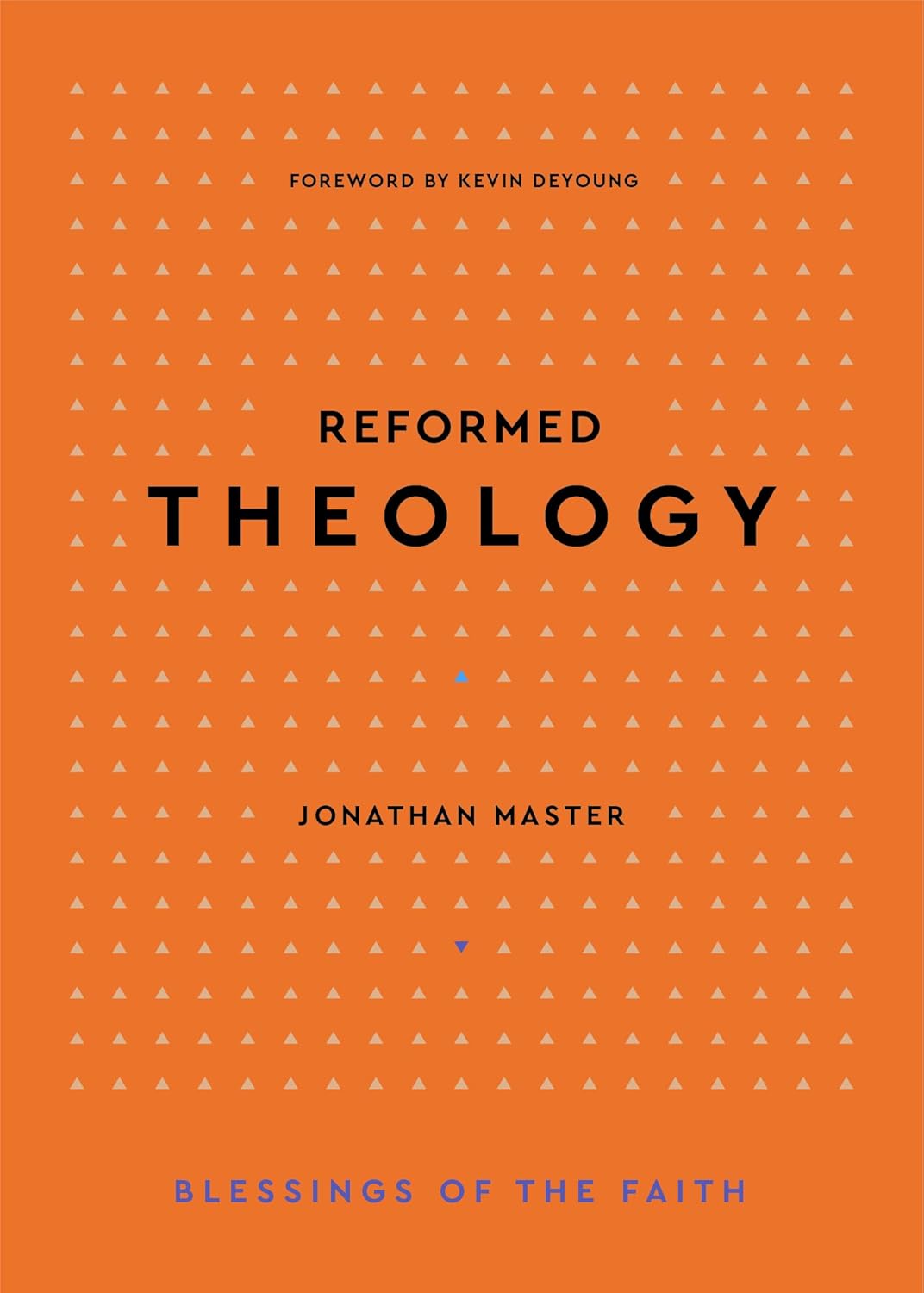Most of you reading this will consider yourself Evangelical; many of you would consider yourself Reformed or Calvinist. If you are in the latter camp, that can likely be attributed to what is now widely described as the Young, Restless, and Reformed movement, which re-introduced Reformed theology to the wider Church two decades ago. This theology rightly emphasised the power, glory, and sovereignty of God in the gospel. Praise be to God! However, this movement didn’t embrace all the aspects of Reformed theology. Rather, it focused on the Bible’s teachings on how we are saved—what theologians would call soteriology.
These truths free us from a conditional love, which depends on us.
Reformed soteriology is, of course important. It shows us that while we were sinners who were actively pursuing our sinful rebellion against God, he saved us. God “made us alive” together with Christ, when we were dead in our sin (Ephesians 2:1, 5-6). It teaches us that in this salvation, God “predestined” and “chose us” for adoption, not because of our inherent desire for God (John 1:13), but because of his sovereign mercy (Ephesians 1:5; Romans 9:16). These truths free us from a conditional love, which depends on us. They empower us to worship God with impassioned thankfulness for his gracious choice rather than our works (Ephesians 2:8-10).
Reformed Theology by Jonathan Master is at pains to show us that Reformed theology is more than soteriology. That is, it’s more than how we’re saved. In his book, Master demonstrates three key truths that we need reminding of; Reformed theology is:
- More far reaching than the acronym TULIP
- More than mere soteriology
- Confessional.
1. Reformed Theology Is Richer Than TULIP
Those who identify themselves as Reformed usually turn to TULIP as an outline of their theology. The acronym stands for:
- Total depravity
- Unconditional election
- Limited atonement
- Irresistible grace
- Perseverance of the saints.
However, in his first chapter, Master deemphasises TULIP. Instead, he demonstrates how the Five Solas of the Reformation teach the very same truths as TULIP, while offering much more. By doing this, Master challenges Christians who affirm the truths of the Reformation to embrace the fullness of those truths. Implicitly, his point is this: if John Calvin and the other Reformers didn’t need TULIP to explain these truths, neither do we. By deemphasising TULIP, Master elevates the truths that TULIP reflects. I believe this is an invaluable step towards building Evangelical bridges without compromising those glorious truths.
If Calvin didn’t need TULIP to explain these truths, neither do we.
Then, in his second chapter, Master dives deeper into these truths, focusing on how Reformed theology’s treatment of scripture emphasises the sovereignty of God. Crucially, he explains why Reformed Christians seem so focused on the sovereignty of God, in predestination and election. For it is how God gets all the glory in salvation (Ephesians 1:6). This is, however, well-trodden ground.
2. Soteriology Is Just Part of Covenant Theology
In the third chapter, Master expands on something introduced in the first: covenant theology. He reminds us that, historically, Reformed theology was actually most often used interchangeably with covenant theology and not Calvinistic soteriology, as it is today.

Reformed Theology
Jonathan Master
What is Reformed theology? For some, it’s all about the covenants. Others think of the Five Points of Calvinism or doctrines such as election and predestination. If you’re looking for more clarity on the topic, or if you’re hoping to provide an explanation for someone else, this brief book serves as a helpful primer and quick reference tool for anyone who wants a well-rounded overview. Learn what makes Reformed theology distinctive, delve into its historic context and biblical support, and get a better grasp of the meaning of the terminology involved.
God’s sovereign gift of salvation is precious, but not the full picture.
A covenant can simply be thought of as “an agreement enacted between two parties in which one or both make promises under oath to perform or refrain from certain actions stipulated in advance” (p51). Using this definition, when we step back and look at scripture, we see how all of scripture is the unravelling of God’s covenantal relationship with humans.
God’s Covenant in Eden
This relationship begins with Adam and Eve. God voluntarily brings himself down and enters into communion with Adam as his “son” (Luke 3:38). Adam is graciously made in God’s own image and God graciously gives him the world to rule over (Genesis 1:28). God gives Adam a wife, Eve, out of his mercy and grace. But God also gives Adam a command, promising death for disobedience and life for his obedience (Genesis 2:16-17). If they continued in perpetual obedience, the first humans would enjoy life and continued fellowship with God. If they disobeyed him, they would receive a just punishment.
Communion with God was lost.
As we know, the serpent enters the garden and tempts Eve to disobey God’s command. Her husband follows her in this disobedience (Genesis 3:1-7). As a result, sin enters the world and death comes with it (Romans 5:12). The obligations of this covenant were broken, communion with God was lost, and the only thing that man deserved was God’s judgement.
The Covenant of Grace
As we also know, the story doesn’t end there. Rather than leaving them to their deserved judgement, God condescends to enter into another covenant, immediately promising that through the seed of the woman, he will “bruise” the head of the serpent (Genesis 3:15). This is the start of a new covenant: the Covenant of Grace. God later shows this same favour and makes covenantal promises to Noah and his family (Genesis 9:9). Then the covenant is more formally explained to Abraham, where the Lord promised to make him a great nation and that all the families of the earth will be blessed through him (Genesis 15:6). Abraham believes God and this is reckoned to him as righteousness.
God’s relationship with his people is covenantal through and through.
Covenant theology shows how the Covenant of Grace is one overarching covenant from the fall that is fulfilled in the person and work of Jesus Christ. Some promises are specific to Israel, others are more basic, general and eternal. But the core substance of the covenant is the same throughout scripture. Even though each ‘administration’ of this same covenant has unique attributes, the underlying elements are the same; as is the promise of eternal life, the mediator (Christ Jesus), and the necessity of faith. Scripture tells one unfolding story.
Master walks us simply through this Reformed teaching and explains how God’s relationship with his people is covenantal through and through. This chapter is worth the book itself.
3. Reformed Theology Is Confessional
Reformed theology, Master reminds us, has never operated in a vacuum. We see this in all the major theologians of church history. For example, in John Calvin’s seminal work, his Institutes, the Reformer quotes and references Augustin among other early church theologians extensively. He does this to demonstrate the lasting truth of these theological convictions through history. Confessions formalise this process. Theologians gathered together to study the Bible, weigh church history, and labour over how to accurately summarise the Bible’s teaching. The result? Systematic summaries of the core doctrines of the Christian faith.
Confessions provide a check on our doctrine to prevent us from going astray.
As Master demonstrates, confessions benefit the church in many ways. They provide us with a theological framework to grab onto, to sharpen and clarify what we understand from scripture and provide a body of teaching that the Church can embrace as biblical (2 Timothy 1:13; Romans 6:17). Most of us will never study the Bible in as great a depth as the theologians who wrote the historic confessions of faith. But through those works we can benefit from their labours.
Confessions of faith also provide us with a check on our doctrine to prevent us from going astray. They remind us of the reality that—to put it bluntly—our opinions about scripture don’t ultimately matter. What God says is all important. As a result, confessions force Christians to engage with scripture in order to disagree. They push us to demonstrate, through the Bible, where the specific confessional teaching doesn’t align. In doing so, our understanding is refreshed, our appreciation for the richness of scripture is renewed, and we grow as followers of Christ.
An Enriching Expression of Reformed Theology
If you resonated with my characterisation in the introduction and you fly high the flag of Reformed theology, but haven’t yet seen the wider riches that its theology brings, this book is for you. The truths about God’s sovereign gift of salvation are precious. But they aren’t the full picture. Reformed theology is likely richer and broader than you initially thought. So you have an exciting path of exploration ahead of you. Master’s book is the perfect place to start.









